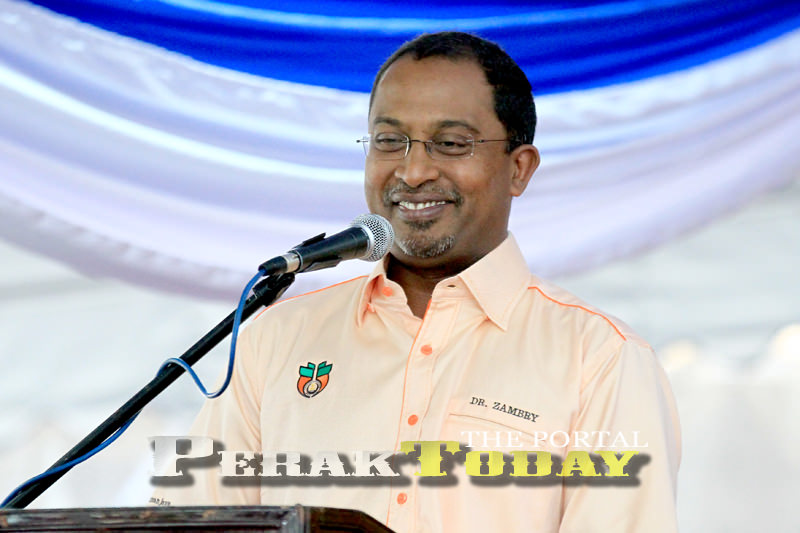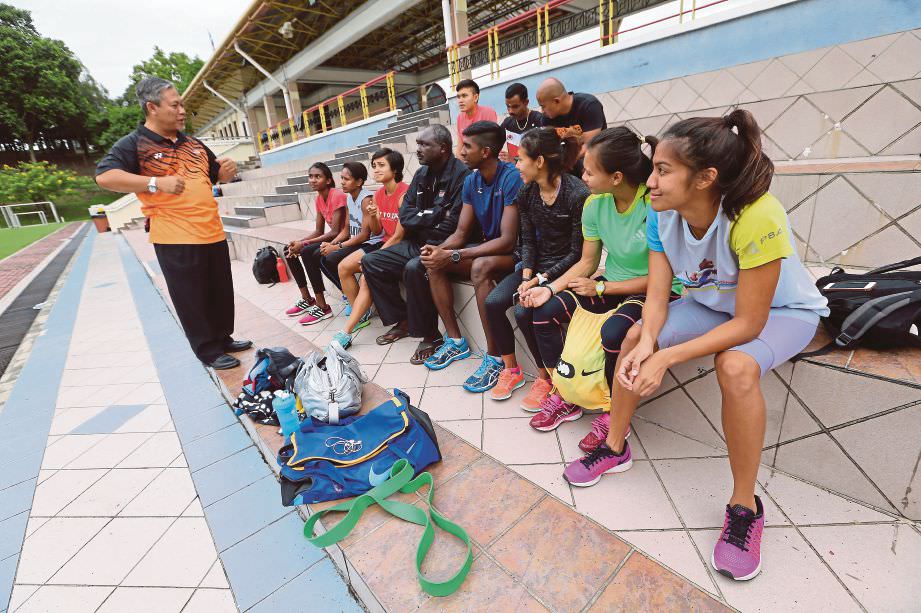It has not been a stroll in the park for Datuk Seri Dr Zambry Abdul Kadir since Barisan Nasional formed the government in Perak and he became Mentri Besar of a state with the most ferocious Opposition.
DATUK Seri Dr Zambry Abdul Kadir is in the spotlight as he is regarded to be holding the most challenging job among Barisan Nasional Mentris Besar. He is tasked with holding on to Perak, which Barisan took over after three Pakatan Rakyat assemblymen defected, leading to the collapse of the Pakatan government 11 months after the 2008 political tsunami.
In an interview, he says he has given his 100% and is confident that Perakians appreciate who is better at serving them. He is about to seek his own mandate in the state and he is confident that Barisan will hold on to power. But he needs his team to come on board with him.
> There is talk that the Kinta Valley will be the valley of death for Barisan Nasional.
The Kinta Valley has been a stronghold for the Opposition but that doesn’t mean Barisan has no hope at all. There are six parliamentary seats in the Kinta Valley Kampar, Gopeng, Ipoh Timur, Ipoh Barat, Batu Gajah and Tambun. In the 2004 general election, Barisan won three of the Kinta Valley seats (Tambun, Kampar and Gopeng) while the Opposition held the other three. At one point, we even held the Ipoh Barat seat. (It was won by Barisan’s candidate Ho Cheong Sing in the 1999 election.)
During the 2008 political tsunami, we held on to two parliamentary seats in the area Kampar and Tambun. To say it is a death valley for Barisan is, to me, a rather skewed view. But one cannot deny the politics of the Kinta Valley is vibrant and we face a lot of challenges as it is an urban area. The geo-political position of the area is also different from other parts of Perak. We have to work harder.
> Is Chinese sentiment in the Kinta Valley similar to the Klang Valley’s?
I can’t generalise as far as Chinese sentiment in Perak is concerned. For example, in my constituency in Pangkor, I obtained at least 60% of the Chinese votes in the 2008 election. This is because I am a kampung boy and everyone there knows me.
In Padang Rengas, the Chinese support enjoyed by (Minister in the Prime Minister’s Department) Datuk Seri Nazri Aziz is different from the parliamentary seats in the Kinta Valley. As for (Defence Minister) Datuk Seri Ahmad Zahid Hamidi‘s Bagan Datoh area, the level of Chinese support there is also different from the Kinta Valley.
We shouldn’t stereotype the Chinese sentiment in Perak. People say they (Chinese) won’t support Barisan but I tend to disagree.
> Chinese support for Barisan in the Klang Valley is said to be at an all-time low. What about in Perak?
During the post-political tsunami, the sentiment was more towards the Opposition as reflected in the results of the Bukit Gantang by-election. But I don’t think it has gone further down. You can see it from the body language of voters. The Chinese are rational. They are looking at which government is more credible in managing the state and they have made their evaluation.
In fact, they have given me some positive assessment and I believe the Chinese business community is quite happy with what we have done and the speed at which development has taken shape. I don’t claim to be the best but I have been working. I want to do something for the state.

> Perak is dominated by Malay seats. What’s your opinion on the shift in Malay votes?
I’m comfortable with the level of support from the Malays and the Indian community. In the past, especially in 2008, Malay support was rather fragmented. They didn’t place much importance on voting. They (Malays) took polling for granted. They were of the perception that Barisan was going to win anyhow, but they have learnt a valuable lesson.
In the last election, we lost some seats narrowly such as in Lubuk Merbau with a mere 72 votes and in Teja by about 200-odd votes. Now they realise the importance of going to the ballot box.
There are positive developments among Indian voters too. They have compared what the Pakatan Rakyat government did during its 11-month rule vis-a-vis Barisan in the same period. They have seen (between) the rhetoric and the practical fulfilment of their wishes.
We have been engaging with the people and doing things to get close to them. We have set new political practice by reducing protocol and cutting red tape.
I go down to their houses, address issues and introduce the Three Fs concept going to the field (ground), feel the people’s problems, and fill the gaps by solving them. This approach seems to be working well.
> What is your greatest challenge?
Winning the trust, hearts and minds of the people is challenging. Changing their perception of the government is equally difficult. But what is more challenging is when you have “serial liars” (in the form of Opposition) around. Dealing with that is very tough. They go around lying without having any sense of guilt. The challenge is to convince the people that what we say is the truth.
For instance, the former Pakatan Mentri Besar (Datuk Seri Nizar Jamaluddin) claimed that he never approved of the Vale (International SA iron ore) project in Teluk Rubiah and challenged me to show proof. I had no choice but to declassify documents to reveal their contents.
I have also been accused of seizing the rakyat’s land and giving it to my mother, and performing the anchak (a ritual to ward off evil spells and is against Islamic teachings).
> How is your relationship with the Umno divisional heads?
Despite what people say, the actual fact is I have been enjoying years of cordial relationship with them. We are all helping each other. This is due to good understanding among us and we are all aware of our priorities. We know we cannot be split or live in separate camps. We know that our common enemy is out there. I’m not saying that things are perfect but Alhamdulillah (Thank God), they are working together with me. I have no problems.
> Do you have any message for the Chinese in Perak?
I am always looking at Perak as a state that belongs to all. We cannot marginalise or dismiss any segment of society, or race for that matter. We should all run the state together. Therefore, I need to have everybody on board and be represented. I call on the Chinese to come along with us (Barisan) to set up a team so that we can form the next government.
> Do people see Gerakan and MCA as “lame ducks” in Perak?
I want them to pick up their pace to capture the hearts and minds of the Chinese community. They need to do so based on today’s political reality. They need to pick up their pace for political victory.
> What about the candidate line-up?
The Prime Minister has been talking about winnable candidates repeatedly and I believe we should take a cue from this. In this election, candidates must be “transformational candidates” and not just one who is there to fill up the quota or because of party hierarchy. It is important that the candidate is a person who is liked by both the people and party members. It is going to be very tough (selecting candidates) but we must choose the right candidate. We cannot sacrifice the party for the sake of individual interest.








